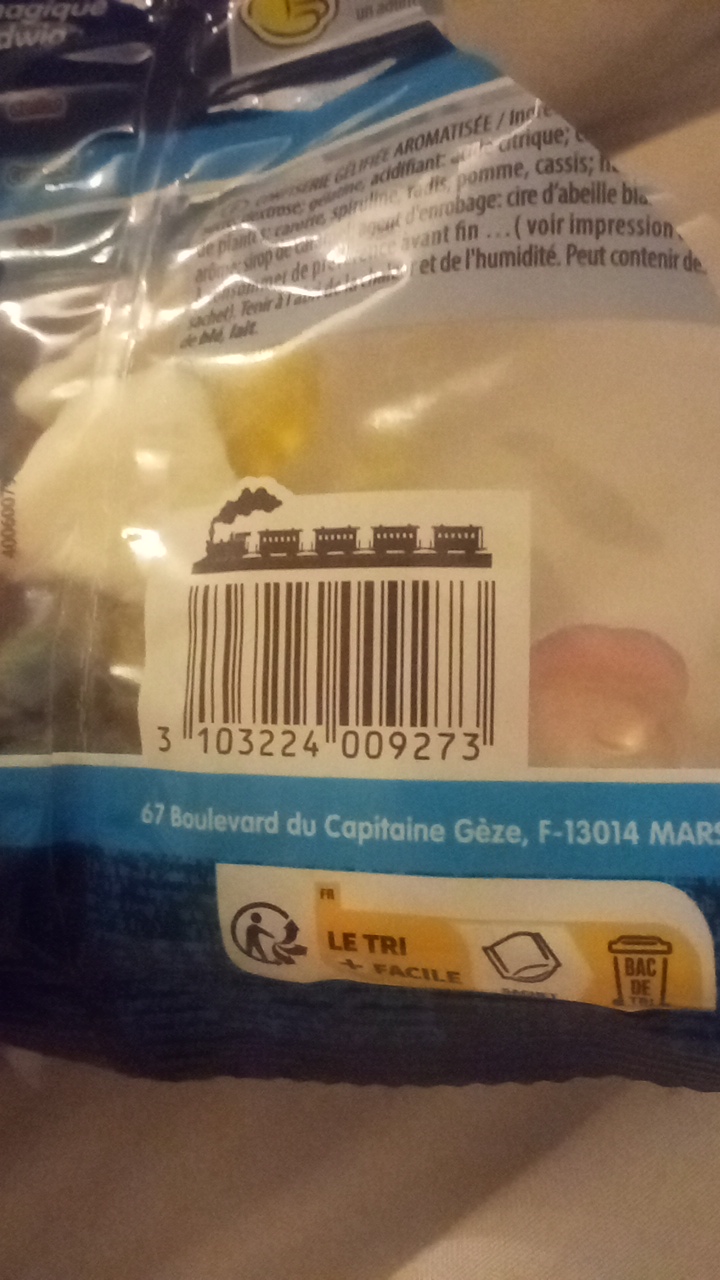
Barcode: 3103224009273
flavored jelly
DOUBTFUL
📝 Reason: Certain components in this product have ambiguous Islamic rulings. Consultation with a qualified Halal certification authority is strongly recommended before consumption.
🏷️ Category: Candy
📄 Certificates: May Contain, Keep Away From Light And Humidity, May Contain Milk, 67 Boulevard Du Capitaine Gèze, F 13014 Mars, Sorting Is Easy, Best Before … (See Impression
Ingredients:
Details
Understanding the Halal Status of Flavored Jelly
When it comes to enjoying sweets, knowing their halal status is crucial for many consumers. Today, we’re exploring the flavored jelly product to shed light on its components and whether it meets the halal criteria.
What is Flavored Jelly?
Flavored jelly is a popular candy enjoyed by many, but its ingredients can significantly influence its halal status. The product contains various components, including glucose syrup, gelatin, and a mix of fruit-based ingredients.
Key Ingredients and Their Halal Status
- Glucose Syrup: Permissible in Islam. This syrup is usually derived from hydrolyzed starches and does not raise any halal concerns.
- Gelatin (E441): This ingredient raises questions regarding its halal compliance. Gelatin can be derived from pork or other non-halal sources. Always check for a halal certification logo to ensure safe consumption.
- Citric Acid: An acidifying agent that is permissible in Islam and commonly used in food to add a sour flavor.
- Dextrose: A simple sugar that is derived from corn or starch and is halal.
- Spirulina: A type of blue-green algae that is entirely permissible in Islam due to its natural origin.
- Radish: A crunchy root vegetable that adds a peppery flavor; it’s halal.
- Apple: Fruits are generally halal unless they have been contaminated, making apples a safe choice.
- Blackcurrant: A fruit that is permissible in Islam.
- Hibiscus: A plant often used for flavoring, which is also halal.
- Sugar Syrup: A sweetening agent derived from sugar and is permissible in Islam.
- Carnauba Wax (E903): Used as a coating agent; it is permissible and safe.
Reasons for the Doubtful Halal Status
While most ingredients in flavored jelly are deemed halal, the presence of gelatin (E441) is problematic. The ambiguity surrounding its source leads to a doubtful halal status. As such, individuals concerned about halal compliance should consult with a qualified halal certification authority before consuming this product.
Consultation and Certainty
The complexities of halal consumption can often lead to confusion. For flavored jelly, it is crucial to reach out to professionals who specialize in halal food certifications. The presence of ambiguous components in this product underlines the importance of thorough verification, particularly concerning gelatin. A halal certification logo is a reliable indicator that a product meets halal standards, providing peace of mind for consumers.
Conclusion
Flavored jelly is a tasty treat, but its halal status is not straightforward. With some components raising doubts, especially gelatin, it’s essential for consumers, especially those who follow halal diets, to investigate further or seek guidance from halal certifying bodies. By doing so, they can ensure that their sweet indulgences are in line with their dietary beliefs.
Always prioritize halal-compliant products by checking certifications and ingredient sources. Happy tasting!
